As Southeast Asia’s most popular travel destination, perhaps Thailand doesn’t need a big introduction. Its famed capital Bangkok, idyllic islands and beach destinations – like Krabi, Koh Samui, and Phuket – are practically household names and provide thousands of visitors each year with happy, unforgettable memories of their stay in this wonderfully exotic and culturally diverse country at the heart of Southeast Asia. And yet despite its popularity, there remain many unspoiled regions and less traveled destinations with a wealth of spectacular attractions and friendly people – shaped by time and still with a story to tell. Whether it’s the glittering spires of the Grand Palace, the peace of rural Isaan, the remote islands of the Andaman, the markets and temples of Chantaburi, or the unexplored coastline of Trat, Khiri Travel Thailand DMC offers you a truly unforgettable and inspirational experience that will put your holiday in a whole new perspective.
Our predominantly local team hails from all corners of the Kingdom, bringing a diverse range of ideas and viewpoints to the table of Khiri Travel Thailand’s business direction and operations. We create new, organic routes, combining the popular and must-see destinations with hidden gems, the curious and the unknown. We venture off the beaten track, cross borders to link cultures and bring our clients to meet people in their homes, villages and communities, where they can become a part of another world. No matter the requirements, we are as comfortable arranging for low-budget as we are for the exclusive and high-end. From campfire simplicity to the ultimate in private luxury pampering, the possibilities with us are endlessly imaginative.
For more information, please contact sales.thailand@khiri.com.














